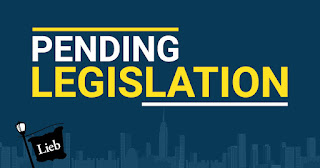Discrimination in the workplace can take many forms, affecting employees' well-being and career progression. If you're facing or have observed discrimination based on a combination of ethnicity and age, it's important to recognize that such behavior not only undermines professional environments but also violates federal and state laws.
Example of Discrimination:
Consider Angela's experience—a Hispanic woman in her fifties working as a technician in a manufacturing plant. Despite her dedication and hard work, Angela was subjected to continuous ethnic and age-based harassment from her colleagues. This harassment created a toxic atmosphere, making it difficult for her to perform her duties effectively. Angela attempted to address the issue by reporting the harassment to her shift supervisor, who unfortunately failed to take the necessary steps to escalate the complaint to human resources. This neglect allowed the harassment to persist, severely affecting Angela’s work life and mental health.
Guidance from the EEOC:
The Equal Employment Opportunity Commission (EEOC) emphasizes that employers have a legal obligation to address harassment once they are aware of it, regardless of whether the complaint comes directly from the victim or a third party. The EEOC guidelines help to clarify that any indication of harassment should prompt an employer to investigate and take appropriate action. This includes situations where the harassment is not explicitly labeled as such but is evident through the conduct described, such as unwanted physical contact or derogatory comments.
Advice from Andrew Lieb, Managing Attorney at Lieb at Law, P.C.:
"Employers must take immediate and effective action to investigate any allegations of harassment. Simply having a policy is not enough; the policy must be enforced to protect employees and maintain a respectful workplace. Victims should not hesitate to seek legal redress when their concerns are dismissed or inadequately addressed by their employer because they have a right to be protected."
Taking Legal Action:
If you relate to Angela’s situation or witness similar discriminatory practices, it's crucial to know that you have legal options available. Reporting the issue within your organization is a critical first step. If the response is insufficient, contacting a legal professional can help you navigate the complexities of filing a formal complaint and pursuing further legal action.
For personalized legal guidance and to explore the full scope of your rights and options, reach out to
Lieb at Law, P.C. Our dedicated team is committed to advocating for those affected by workplace discrimination and ensuring that they receive the justice and support they deserve.
*Attorney Advertising
Learn more about the author of this blog
.jpg)





